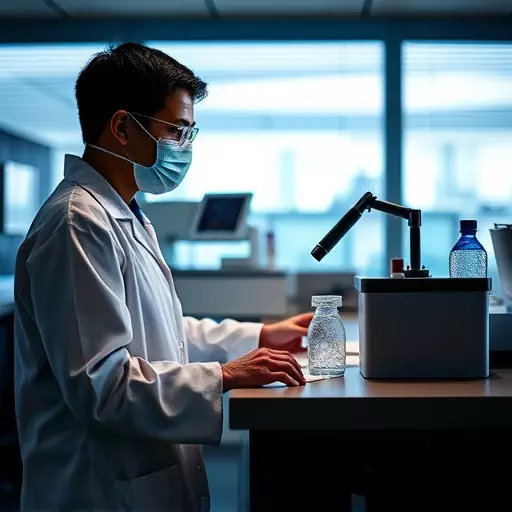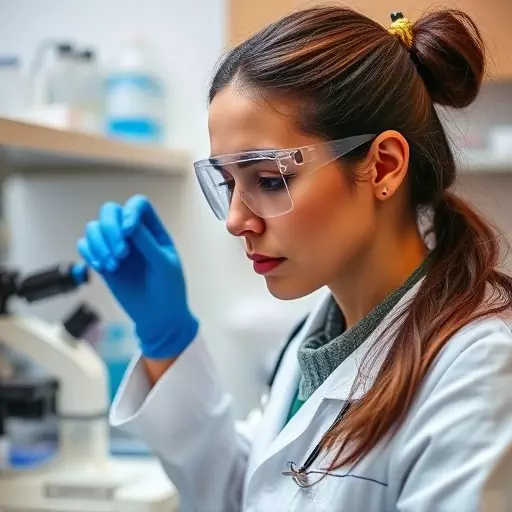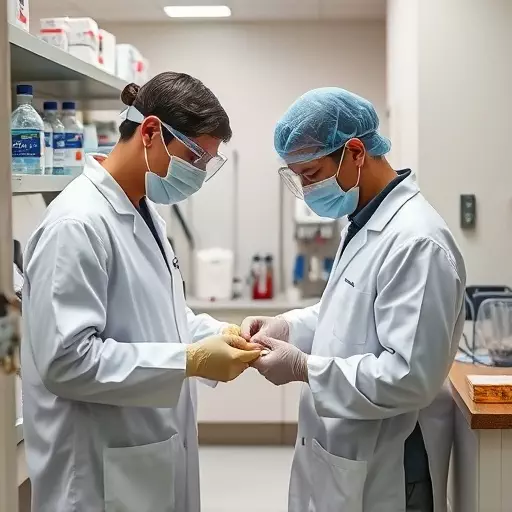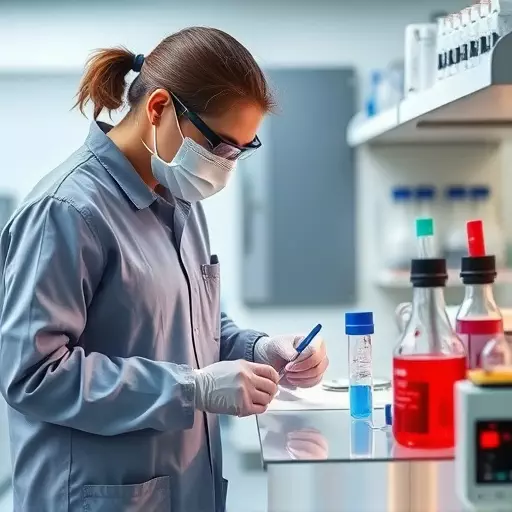Transitioning from lab work in Akron to policy roles offers rewarding paths for hematology specialists, leveraging technical expertise in forensic analysis to shape healthcare and justice systems. The process involves developing communication and critical thinking skills to translate scientific findings into policy implications, opening doors to regulatory affairs, government positions, or non-profit work. Key steps include enhancing transferable skills through education and exploring opportunities in forensic laboratory analysis for unique insights and contributions.
Transitioning from lab work in Akron to policy roles offers a compelling career shift for professionals in the field. This article guides you through this transformation, exploring diverse paths including the detailed journey of becoming a hematology lab specialist and uncovering opportunities in forensic laboratory analysis. We’ll delve into essential skills and knowledge transfer required to bridge the gap between lab work and policy, providing practical steps for aspiring lab professionals eyeing this shift.
- Understanding the Shift: From Lab Work in Akron to Policy Roles
- The Path to Becoming a Hematology Lab Specialist: A Detailed Journey
- Exploring Opportunities in Forensic Laboratory Analysis
- Skills and Knowledge Transfer: Bridging the Gap Between Lab Work and Policy
- Navigating Career Transitions: Practical Steps for Lab Professionals Aspiring to Policy Roles
Understanding the Shift: From Lab Work in Akron to Policy Roles

Transitioning from lab work in Akron to policy roles can seem like navigating a complex labyrinth, but for those interested in shaping healthcare and justice systems, it’s a path worth exploring. For many professionals initially focused on technical aspects like hematology lab specialist duties, this shift involves more than just leaving the microscopes behind. It requires cultivating skills in communication, critical thinking, and advocacy, essential for translating scientific findings into policy implications.
This transition isn’t merely about changing job titles; it’s about leveraging expertise gained from hands-on experience in forensic laboratory analysis to influence decisions that affect public health and safety. Whether considering regulatory affairs, government positions, or non-profit work, understanding the intersection of science and policy opens doors to unique opportunities for making a tangible difference.
The Path to Becoming a Hematology Lab Specialist: A Detailed Journey

The journey towards becoming a Hematology Lab Specialist is both rewarding and demanding, offering a unique blend of scientific expertise and clinical application. It begins with a solid foundation in laboratory work, often starting in the vibrant and bustling environments of Akron’s numerous medical facilities. Here, aspiring specialists gain hands-on experience in various lab techniques, mastering everything from sample preparation to advanced diagnostic testing. This initial phase lays the groundwork for their future roles, enabling them to understand the intricacies of different laboratory procedures.
As they progress, individuals delve into the specialized field of hematology, exploring opportunities in forensic laboratory analysis. This path requires a keen eye for detail and a deep understanding of blood disorders and diseases. By engaging in rigorous training and education, they learn to interpret complex data, identify rare conditions, and contribute to accurate diagnoses. The transition from general lab work in Akron to becoming a hematology specialist is thus a meticulous process, ensuring professionals are equipped to handle the unique challenges presented by this specialized domain within the medical field.
Exploring Opportunities in Forensic Laboratory Analysis

In the dynamic field of forensic science, lab professionals often find rewarding career paths that go beyond conventional lab work in Akron. Exploring opportunities in forensic laboratory analysis opens doors to specialized roles that marry scientific expertise with criminal justice applications. This path allows individuals, particularly those interested in the intricate world of hematology, to leverage their analytical skills and contribute to critical investigations.
For those aspiring to become hematology lab specialists, forensic laboratories offer a unique environment where they can utilize their knowledge of blood analysis in real-world scenarios. From identifying unknown specimens to aiding in homicide cases, these professionals play a pivotal role in ensuring justice. The journey involves advanced training and certifications specific to forensic science, enabling individuals to navigate this specialized sector seamlessly.
Skills and Knowledge Transfer: Bridging the Gap Between Lab Work and Policy

The transition from lab work in Akron to policy roles can be seamlessly navigated by leveraging the unique skills and knowledge gained in the field. For those following the path to becoming a hematology lab specialist, this shift offers an exciting opportunity to contribute beyond direct patient care. The technical expertise honed during lab work—from meticulous data analysis to understanding complex protocols—translates directly into policy development and implementation. These skills are invaluable when exploring opportunities in forensic laboratory analysis, where rigorous scientific methods meet legal requirements.
By bridging the gap between lab work and policy, professionals can bring a practical perspective to regulatory frameworks. They can ensure that policies reflect the realities of laboratory practices, enhancing efficiency and accuracy. This transfer of knowledge encourages a more integrated approach to science and policy, ultimately benefiting various sectors, from healthcare to forensics.
Navigating Career Transitions: Practical Steps for Lab Professionals Aspiring to Policy Roles

Navigating Career Transitions: Practical Steps for Lab Professionals Aspiring to Policy Roles
For those lab professionals in Akron interested in transitioning from hands-on lab work to policy roles, understanding the path ahead is crucial. The first step involves exploring various policy aspects within your field of expertise, such as public health, safety standards, or regulatory affairs related to lab work in Akron. This can be done through professional networks, industry events, and online resources that highlight current trends and challenges in laboratory practices. Developing a strong foundation in these areas will help you identify specific policy domains that align with your interests.
Additionally, enhancing transferable skills is essential for this career shift. Communication, critical thinking, and problem-solving abilities acquired through lab work can be leveraged when engaging with complex policy issues. Consider taking courses or attending workshops focused on policy analysis, research methods, or even public speaking to sharpen these skills. Exploring opportunities in forensic laboratory analysis, for instance, can provide valuable insights into the application of scientific principles in legal settings, fostering a unique perspective for policy contributions.
